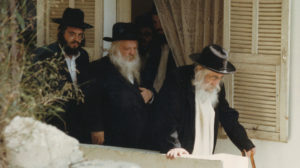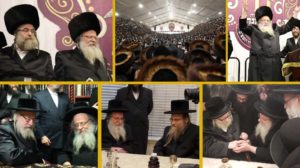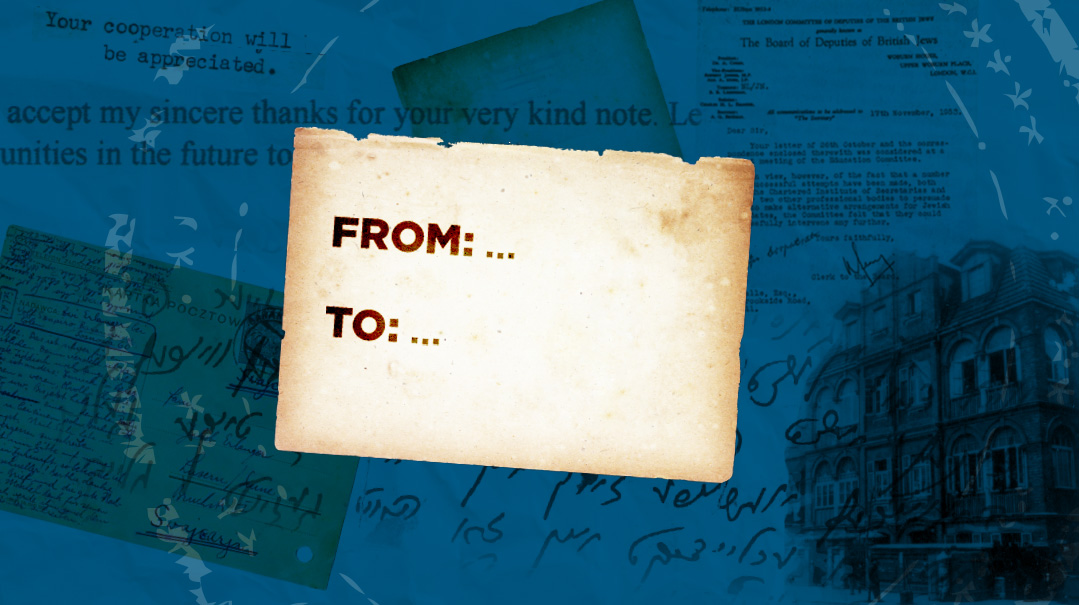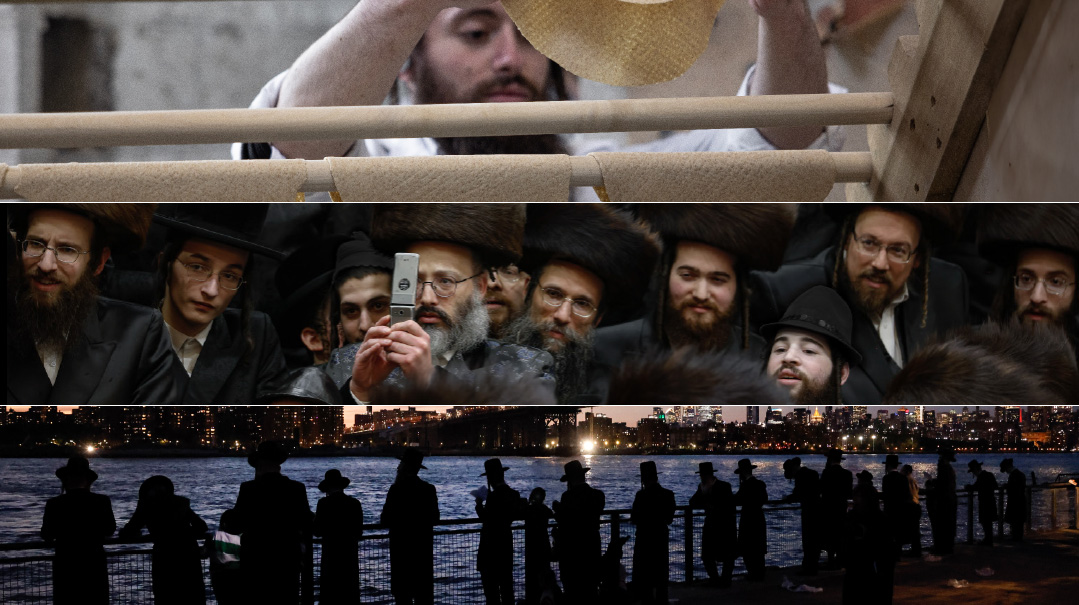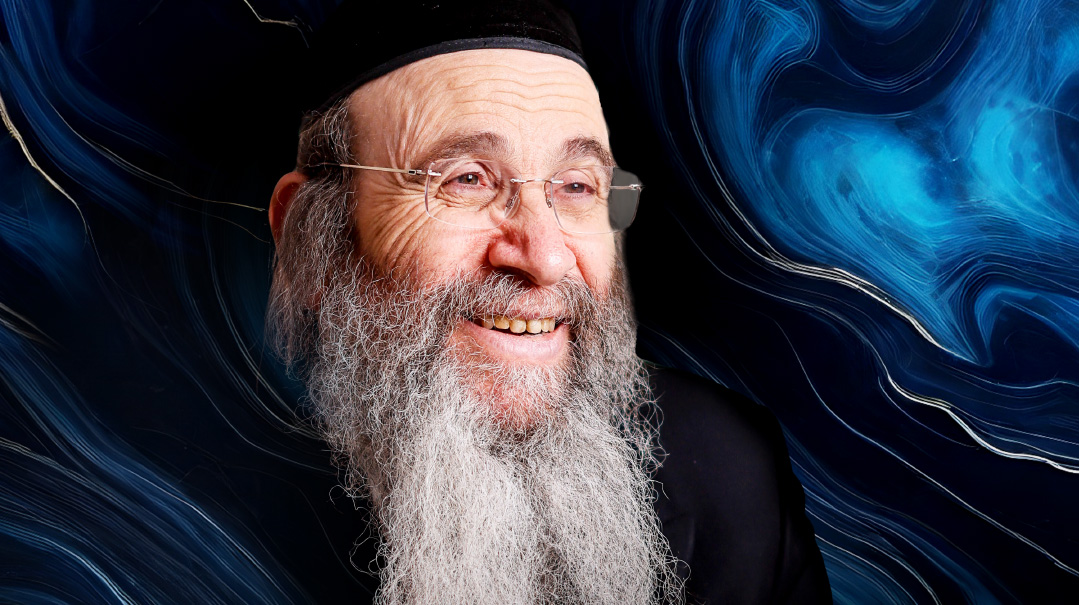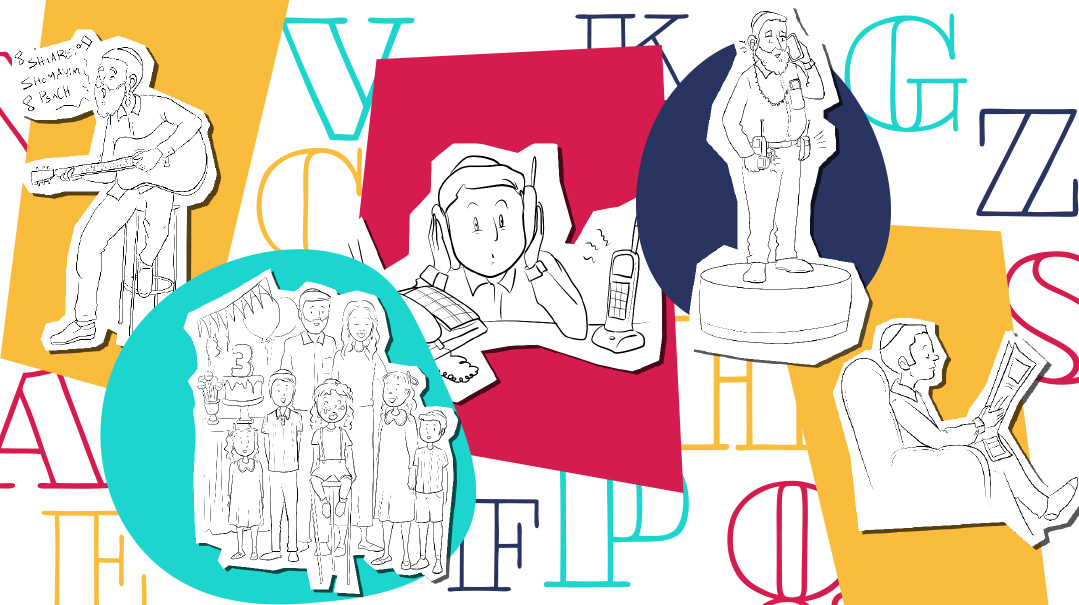Each and Every Word
| August 26, 2020When it came to the honor of Heaven, there was no holding back. That’s why Rav Chaim Dov Keller ztz”l was my role model
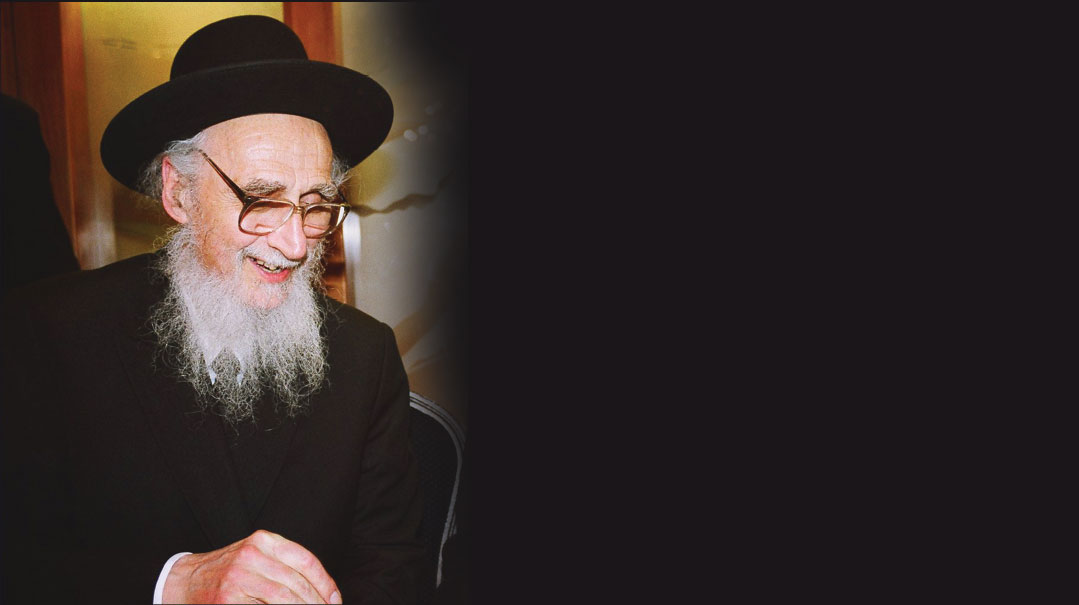
Photos: Matisyahu Goldberg, personal archives
When Rav Chaim Dov Keller ztz”l joined Telshe-Chicago in 1961, established by Rav Avrohom Chaim Levin and Rav Chaim Schmelczer a year earlier, he was assuming a role not only in the yeshivah but in a revolution. The roshei yeshivah of Telshe were driven by a mission: to spread the undiluted, boundless supremacy of Torah without holding anything back. They began with the talmidim, extended outward to their parents and siblings, and gradually transformed entire families.
My family was one of those families.
The Keller home was a comfortable home, a home filled with pleasantness, a sense of humor, and fun, and I reveled in that warmth from a young age. Walking in on Erev Shabbos, I’d see the Rosh Yeshivah preparing the cholent for Shabbos. He and his rebbetzin provided a living lesson in marital harmony and raising well-adjusted, happy children. I witnessed their boundless love for their children (and children-in-law). I recall how many pots the Rebbetzin had to use to satisfy all the different chumros and minhagim of the family that would come for Pesach, all with a genuine smile on her face.
My mother would drive me to Shacharis every morning. The ride took us past the Rosh Yeshivah’s house (with the pink garage door). Invariably, we would pass his house at the exact moment the Rosh Yeshivah was leaving, and so we had the zechus to drive him to Shacharis. My mother would use the opportunity to ask Rav Keller her sh’eilos, some of them more important, some of them less significant, and he always answered her with such patience and respect.
In 1974 the Rosh Yeshivah was a passenger on one of our trips to Cleveland. My father was in the driver’s seat, Rav Keller was in the passenger seat, and I was scrunched in the middle, my feet high up, perched on the dashboard. I was in eighth grade at the time, and slated to attend the yeshivah the upcoming year. My father asked, “Rebbi, are you ready for Pesach next year? I mean, are you ready for him and his bright red Shabbos suit?”
Rav Keller responded, “Don’t worry, Mr. Siegel. We’ll take good care of Pesach and his red suit!”
At the time, I had no idea how much the Rosh Yeshivah was going to “take care” of me.
“You’ll Know How to Learn”
Rav Keller was brilliant. He was fascinating. He had an iron-tight grip on the mesorah, in particular the mesorah of his great rebbeim, Rav Eliyahu Meir Bloch and Rav Mottel Katz. At the same time, he was broad-minded, articulate, and well educated. One never sensed that he was trying to fit a talmid into a particular mold. All the talmidim, even the independent ones with a rebellious streak, naturally gravitated to him.
When I was 16, I decided I would finish Shas before my 20th birthday, which would mean I wouldn’t be able to keep to the yeshivah schedule. The Rosh Yeshivah had a talk with me. He could have just said no. He could have told me, “There are no exceptions. You must keep sidrei hayeshivah.” Instead he spent 45 minutes “having it out” with me, taking his valuable time to listen and counter all my righteous-indignation-fueled arguments. And then he told me, “Pesach, if you follow sidrei hayeshivah you might not finish Shas before you are 20. But you will know how to learn. Some of Shas you will know, and some of Shas you won’t know yet. But I assure you that if you go through with what you are planning, you will be an am ha’aretz in gantz Shas!”
My mind opened up wide. The Rosh Yeshivah breathed into us the life that emerged from the deep divrei machshavah of the Alter Telsher Rav, Rav Yosef Leib Bloch. We were introduced to the olamos ha’elyonim, the worlds that cannot be sensed by the physical faculties. We plumbed the depths of the kochos hanefesh, the profundity of the human soul.
I was too young to join the mussar vaad of the older bochurim, but Rav Keller filled a need and created a vaad in the sefer Derech Hashem for those bochurim who were “too young.” It was transformative. He opened up our minds to the inner workings of body and soul. He expanded our level of understanding beyond our present capabilities through his down-to-earth examples and creative meshalim.
Rav Mordechai Gifter looked to Rav Keller as an example of one who uses the kochos Hashem granted him. Rav Gifter taught, “There are those who bury their abilities. If one possesses a talent, it is G-d given. And it should not go to waste. It is incumbent on one to find a productive manner of expressing one’s abilities. Rav Keller, who is an extremely busy person and carries great responsibility, is skilled in the area of language. And yet, he has taken upon himself to create an English commentary on Mishlei. He did so because he is uniquely suited to fill this important need.”
The Rosh Yeshivah was a wordsmith, a master of the English language. (Prior to attending Telshe Yeshivah, he completed a university degree in languages.) He was articulate. Each word was measured and his words were designed for maximum impact. His preparation was meticulous. He collected his research in the file cabinets of his study. He even filed away cartoons when they conveyed a message he wished to share.
I was his chavrusa during halachah seder. He had an organized and consistent manner of studying halachah: first, Tur and Beis Yosef, then Shulchan Aruch with Magen Avrohom, and finally, Mishnah Berurah. The Rosh Yeshivah was the baal tokeia for the yeshivah, and we learned the halachos of tekias shofar together during this seder. And as we learned the halachos I witnessed the intense preparation he invested in the performance of this weighty mitzvah. He taught me his chumros and shared his tips with me. (Don’t “blow” into the shofar, “breathe” into the shofar. Blow at least 12–13 teru’os. Otherwise the baal makri will send you back). I’ve been a baal tokeia for the past 33 years and when I blow, the Rosh Yeshiva’s “chinuch” blows alongside me.
The Rosh Yeshivah supervised the secular studies of the high school. The yeshivah had a policy. A Jewish teacher in the high school was required to wear a head covering. This was never a point of contention. Until Neal joined the staff. Neal considered it hypocritical. He viewed it as religious coercion. And he wouldn’t wear one, even at cost to his position. Rav Keller tried, without success, to explain that it was just a dress code. Neal insisted, “It’s a religious article of clothing.” Rav Keller responded, “A religious article?” He took the yarlmuke off his head (covering his head with the other hand) and stepped on it! Neal reacted with alacrity, “How could you do that to such a sacred item?” Rav Keller commented on the irony of the secular teacher’s reverence for an item he refused to wear!
The kollel members would consult him on the matter of taking government money. He was against it. He told me that yungeleit justify it by saying, “Should the money only go to the lowlifes?” Rav Keller viewed it differently. “Because a lowlife takes the money, therefore one who learns Hashem’s holy Torah should take it?”
With Power and Love
Once, after Shacharis, Rav Keller wanted to tell me a story. He said, “Wait a minute. I have to take off my tefillin to tell you this story.” He told me of a rabbi who had recently traveled with him. The rabbi related that a woman entered the Mir Yeshivah on Yom Hazikaron and witnessed the learning going on as usual (during the moment of silence dedicated to the memory of Israel’s fallen soldiers, yehi zichram baruch). She began screaming at the students for their disrespect. The rabbi expressed his anger, “This woman lost a son. He gave up his life in the defense of his country. Those students didn’t have the decency to listen to her. They totally ignored her. Those yeshivah bochurim [prefaced with an expletive we cannot repeat] have no ahavas Yisrael!”
Rav Keller responded sharply, “They have no ahavas Yisrael? And who has ahavas Yisrael, you? I am considered to the extreme “right.” I am looked upon as an extremist. And yet I can sit with those across the spectrum, with those who are far from my perspective, and form lasting bonds and relationships and work together with all on matters of mutual interest. But you, who claim to have ahavas Yisrael, can love all Jews with one exception — you cannot love the yeshivah students!”
The Rosh Yeshivah heard of a conference held on a radio program that included an Orthodox rabbi as well as representatives from other denominations. Of course, the Orthodox representative didn’t agree with their heresy, but he referred to them as, “my colleagues.” With powerful emotion Rav Keller exclaimed, “My colleagues?! You call them ‘my colleagues’? They are bent on destroying any connection to Toras Moshe and you call them ‘my colleagues?’ Would you call a drug pusher ‘my colleague’?
He was powerful, combative, and embracing all at the same time. He didn’t just learn, he fought. I was “arguing” with him and suddenly felt a powerful blow to my shoulder. He punched me! With his left fist. I didn’t see it coming. And then he said, “That’s because you’re an akshan.” His punch was a badge of honor. It drove me to strive harder. And instead of turning me away, I came back for more.
He was a living example of how important it was to get the sugya right. He cared so much and it rubbed off on us. It pained him when things didn’t add up. We were inspired by the deep wrinkles of his forehead that were so prominent due to his intense concentration. He engaged us and welcomed interaction. And he gave us tools. He told us, “The Baalei HaTosafos challenge and pose apparent contradictions based on texts found in other masechtos. There is a tendency to base our understanding on the partial quotes of those sources. One will only properly understand the Tosafos by studying the quoted material at their original source. One who fails to do so is compared to one who plays chess and determines his moves by flipping a coin. He might win the game. But it’s sheer luck. It is not because he knows how to play chess.”
The Rosh Yeshivah was fascinating and original. He would say what others were hesitant to say with total disregard for his own kavod and what others might think. When it came to matters of taharas Yisrael and kiddush Sheim Shamayim there was no holding back. He once addressed the community in the yeshivah beis medrash. The ezras nashim was noisy, and the shushing didn’t alleviate the problem. Rav Keller took the matter into his own hands, “Ladies, either I’ll talk and you listen or you’ll talk and I’ll listen.”
The Rosh Yeshivah was mesamei’ach.
When the Rosh Yeshivah danced, he danced with all that he had. In the early days, he would dance energetically with great abandon, his long legs flinging wildly, and a flower held in his lips. At the culmination of the dance he would “eat” the flower… and then spray the petals all over the place!
On Simchas Torah he energized the oilam, dancing nonstop. We enthusiastically danced to the song “shelo asani goy” around a shtender. The Rosh Yeshivah called out, “Dancing requires energy. The ones further away from the shtender expend the most energy. The ones holding on to the shtender have no difficulty keeping up. Always hold on tight to your shtender.” The dance resumed… and there was a race to be one of those to hold on to the shtender.
Speaking Their Language
When the Rosh Yeshivah spoke, he was cognizant of his listeners. Although the norm for a rosh yeshivah was to speak in Yiddish, he didn’t hesitate to speak in English when necessary. He once came back from a lecture in Miami. After the lecture a fellow challenged him, “Why did the Rosh Yeshivah speak in goyish?” He responded (in Yiddish), “If I would have spoken in Yiddish, no one would have understood me.” The fellow replied, “Listim she’ke’moscha kavshuha” (It was “robbers” like you who caused this). The Rosh Yeshivah wasn’t offended, and was amazed that someone thought that if all the roshei yeshivah would address English-speaking listeners only in Yiddish, they would all end up understanding Yiddish!
In 2002 the Rosh Yeshivah came to Eretz Yisrael, and spoke to the Telshe-Chicago alumni here. I drove the Rosh Yeshivah to the venue. In my car was Ami, one of my talmidim, and the Rosh Yeshivah spent the few minutes getting to know him. When the Rosh Yeshivah began speaking, his opening remarks were in Yiddish, as his public speeches to talmidim invariably were, and then he switched to English. After the shmuess the Rosh Yeshivah explained, “To the talmidim I speak in Yiddish. But I saw that Ami was there. And I thought, Ami doesn’t understand Yiddish. So, he will be sitting through a derashah for 45 minutes not understanding a word.”
I told Ami of the Rosh Yeshivah’s sensitivity, and it made a deep impression on him.
Rebbi’s Kiss
The Rosh Yeshivah never let go. Even after I left the yeshivah, I studied with him in his house during bein hazmanim. He came to my aufruf when he was in aveilus for his father. We were “family” and he allowed himself to attend the simchah (on Shabbos). He was my baal eitzah from an early age until the recent present. When I approached him for advice or help in making a decision, he seldom answered right away. He would say, “I have to think it over” or “I have to sleep on this.” And he wouldn’t be rushed. If he hadn’t thought it over, I would have to wait until he did.
The bris of my youngest son took place Chol Hamoed Succos. The Rosh Yeshivah was in Kiryat Sefer for Yom Tov. He came from Kiryat Sefer for the bris. I never dreamed that I would have the zechus of having my rebbi from chutz l’Aretz holding my son, sitting next to me by the seudah. The joy it brought us was indescribable.
In 2017 the Rosh Yeshivah traveled to Eretz Yisrael for the chasunah of a granddaughter. At the time, I had the zechus of having the Rosh Yeshivah’s great-grandson Leizer in my shiur. Through Leizer’s efforts, the Rosh Yeshivah consented to give a derashah in our yeshivah (Yeshiva Tiferes). For a brief period of time, I was a young bochur once again, in Telshe Yeshivah, drinking thirstily from the life-nourishing words of my rebbi.
I drove the Rosh Yeshivah to his destination. Before we parted, I shared with him some sentiments. I said, “Rebbi, moving to Eretz Yisrael was rewarding. I grew so much. But the hardest part of moving to Eretz Yisrael was leaving my entire past behind, my family, and my rebbeim.” He turned to me and said, “But you have big rebbeim in Eretz Yisrael.” I responded, “They watered me and nourished me. I learned much from them. But Rebbi ‘gave birth’ to me.”
The Rosh Yeshivah bent over and kissed me on the top of my head.
Rabbi Pesach Siegel is a maggid shiur in Yeshiva Tiferes in Bayit Vegan.
(Originally featured in Mishpacha, Issue 825)
Oops! We could not locate your form.





